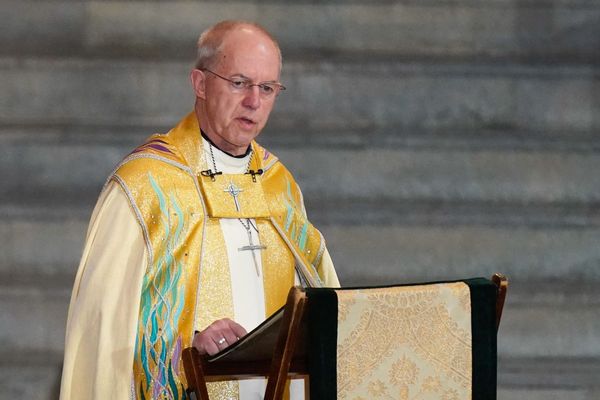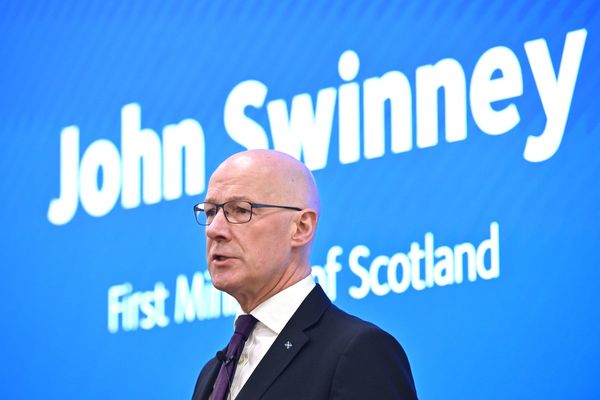
Michael Holroyd turned 80 in August, but a group of fellow biographers - displaying a perturbing collective propensity to deviate from the facts of an author’s life, it might be felt - nonetheless celebrated his birthday this week in a Royal Society of Literature event chaired by Hermione Lee, with Holroyd in the front row. They began by quoting favourite passages from his essays and lives of Lytton Strachey, Bernard Shaw and Augustus John, and identifying aspects of his work that had been inspirational for them and others, while carefully avoiding the word “legacy” (Lee acknowledged the risk of such a tribute becoming “a hagiography or obituary” when its subject was “sitting right there”).
For Jenny Uglow, whose subjects have included Elizabeth Gaskell, William Hogarth and Charles II, Holroyd had shown that, instead of having to be weighty and stuffy, biographies “could be alive, funny, penetrating, about people and stories, not afraid to focus on the private self”. Richard Holmes (Shelley, Coleridge) admired his books as “a celebration of certain kinds of liberal values like tolerance and wit”, and as reflecting life’s authentic texture as a blend of “tragedy and comedy”; he also praised the “paradoxical” quality of his writing, the way its “high style can express simple, direct truths”.
Like Uglow, Patrick French (VS Naipaul, current project Doris Lessing) credited him with freeing up biography – it can “teach you ways of living”, be “a form of social history” and “do all sorts of things normally seen as the novel’s province” – but also offering a more rigorous “idea, a narrative explanation of why a person is as they are, not just a chronicle”. Ruth Scurr cited Holroyd’s words on the literary biographer extending “a hand” and inviting the subject “to write one more work posthumously and in collaboration” as underpinning her own innovative life of John Aubrey.
At this point the supposed birthday boy was invited on stage, and wryly talked of being “elevated” into a fictional figure called “Holroyd”. He cleverly chose to briefly discuss, not this literary guru’s work but Virginia’s Woolf’s single contribution to the genre, a flawed study of Roger Fry towards the end of her life that “failed to revolutionise the art of biography” – leaving the audience to guess whether this apparent parable was a confession that, like Woolf, he had ended up admitting that he didn’t know (or no longer knew) how to do it, or a coded message to the panel about the perils of overconfidence or over-experimentation.
With Holroyd back in his seat after this genial possible bombshell, Lee asked if his “humorous, tolerant, non-judging empathy” was still the right approach. Holmes and French both firmly rejected being overtly judgmental - French mentioned an instance of Naipaul behaving badly by not buying his first wife a ring, when just quoting his explanation was “all I needed to say” - and no one stood up for playing the blame game, although it was noted that, in biographies of women such as Woolf and Mary Wollstonecraft, the men in their lives now often come in for criticism.
Disagreement only surfaced when the repercussions of emails and social media replacing letters and diaries came up. Holmes pooh-poohed past prophecies that this would kill off the genre, arguing that vast digital archives were taking the place of traditional ones: “There’s no dearth. It’s not a Sahara out there – it’s amazingly rich.” French, however, craved “a full literary archive” and thought Holmes might be being too “optimistic” because it was “very hard to recover the daily interchange of life” from emails and posts (although, he pointed out, this was already tricky pre-internet: authors using the phone long ago made it more difficult to “figure out how a relationship had gone the way it did”). Asked about the apparent view of many publishers that (solo) “biographies are dead”, the bevy of Boswells for once gave unsatisfactory answers. Each came up with recent examples showing the form was creatively healthy – ranging from the TH White mini-life within Helen Macdonald’s H Is for Hawk (Scurr) to Sarah Bakewell’s Montaigne (Uglow); yet, even though Holmes and Uglow have both partly shifted of late towards on-trend group biographies or cultural history, the issue of the single life’s viability as a commercial proposition was dodged – as was whether mainstream publishers will continue to commission books about figures who might be considered second-tier, latterday equivalents of Holroyd’s Strachey and John.







